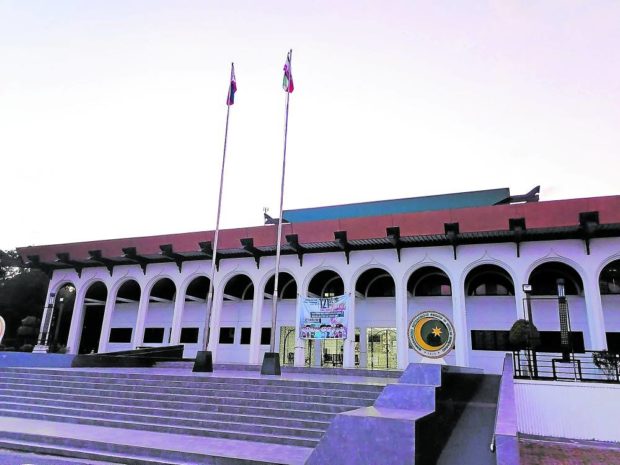
FILE PHOTO: The Bangsamoro Autonomous Region in Muslim Mindanao (BARMM) seat of government is located in Cotabato City. Photo by Bong Sarmiento
MANILA, Philippines — The Bangsamoro Autonomous Region in Muslim Mindanao (BARMM) will be electing its officials in 2025 in accordance with the newly ratified Bangsamoro Electoral Code approved on Wednesday.
In a BARMM statement, it said the Bangsamoro Parliament approved the Bangsamoro Transition Authority Bill No. 29 paving the way for residents to elect its leaders.
The bill garnered 64 votes, with none in favor nor abstaining, BARMM said in a statement Thursday.
Currently, the region is under the Moro Islamic Liberation Front (MILF)-led interim government, also known as the Bangsamoro Transition Authority, appointed in 2019, followed by a reorganization in 2022.
According to the statement, BTA Bill No. 29 was introduced in September 2022 and was certified as urgent by BARMM Chief Minister Ahod Balawag Ebrahim.
The parliament also promised President Ferdinand Marcos Jr. that the Bangsamoro Electoral Code would be enacted by the first quarter of 2023.
Despite the three-day parliamentary reading rule, its second and third readings were done on the same day, March 08, 2023.
The Bangsamoro Electoral Office (BEO) will be under the direct control and supervision of the Commission on Elections, BARMM said.
It will supervise national, regional, and local elections, plebiscites, initiatives, referenda, and recall proceedings.
In December 2022, governors of the five Bangsamoro provinces questioned provisions regarding the powers bestowed to the BEO.
Basilian Administrator Manny Maurip said that “National laws must prevail over regional laws, and uphold the independence and powers of the Comelec.”
BARMM said the parliament held ten-day deliberation to examine the provisions before the plenary session.
The BEO will “ensure compliance with election laws and other pertinent rules of the COMELEC,” BARMM added.
To ensure that stakeholders are involved in the process, public consultations were held in Manila, Basilan, Sulu, Tawi-Tawi, Maguindanao, Lanao del Sur, Cotabato City, BARMM said.
Under the code, the parliament will be composed of 80 members consisting of 40 party representatives, 32 district representatives, and eight sectoral representatives, including two non-Moro indigenous peoples and settler communities. The code also provides that not more than 40 percent of members of the parliament should be of the same political party.
—MJ Soriano, INQUIRER.net trainee
RELATED STORIES:
Governors question some provisions in draft Bangsamoro Election Code
BARMM gov’t commits approving electoral code before end-2021
Bangsamoro Parliament tackles proposed election, local governance codes

